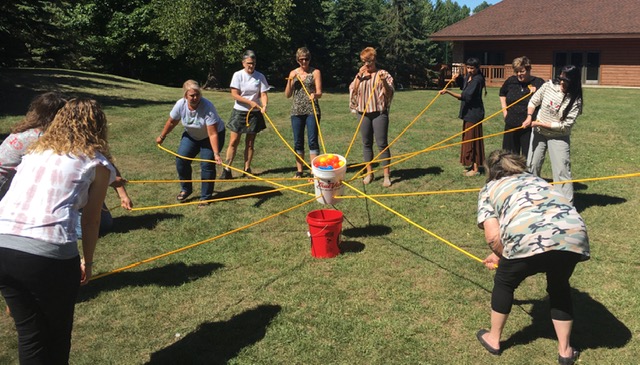The Doctor is In: Treating Team Dysfunction

Over the 12 years that I have been speaking and engaging with audiences, on several occasions, I have been asked to come in and work with a team struggling with dysfunction, low morale, or some other ailment. And although this request is a departure from my typically delivered product, I always say yes. I enjoy the challenge. In a way, I consider myself a “Team Doctor,” working to help to make the team better. And like any doctor, I can’t necessarily fix everything, but it is gratifying to make a difference in the team’s performance, cohesion, and, frankly, their future.
I’ve worked with tourism groups, manufacturers, dental offices, and healthcare teams. And despite their differences in their respective missions, I often see common themes when the team is misfiring. Here are 3 of the top 10 things I encounter:
- Equity. Team members want equity. They actively watch for special treatment for other team members, and they keep track. We are all still just eight years old. Telling the team members to “mind their own business” or “watch your own bobber” does not work and only fuels the resentment. No favorites. If we have rules, we ALL must follow them—no exceptions.
- Conflict in the Team— and I’m talking about the bad kind of conflict (versus conflict of viewpoint). Unaddressed conflict makes team members sad. Most, maybe not all, but most teammates want team members to get along, and they want to work in an environment that is pleasant. All feel the conflict between two or more team members. They value harmony and want to work at a place where there is a level of respect.
- Hesitation. A common team killer is waiting to address issues. Leaders hesitate because perhaps they don’t know what to do or are unsure about the magnitude of the problem. Leaders think maybe it’s not that big of a deal. From my experience, by the time a problem has percolated up to the leader, it is big indeed. No reason to wait— dig in. Hesitation kills. intervene early, intervene often.
If you are the leader of the team, a big part of your duties is to simply PAY ATTENTION.Some kind of warning light will illuminate on your leadership dashboard— don’t ignore it. I know firsthand that bringing someone in, someone impartial, someone to work with the team who can see the facts for what they are, can be beneficial. If there’s trouble, enlist the expertise of a “Team Doctor” or deal with it yourself— but do something.
